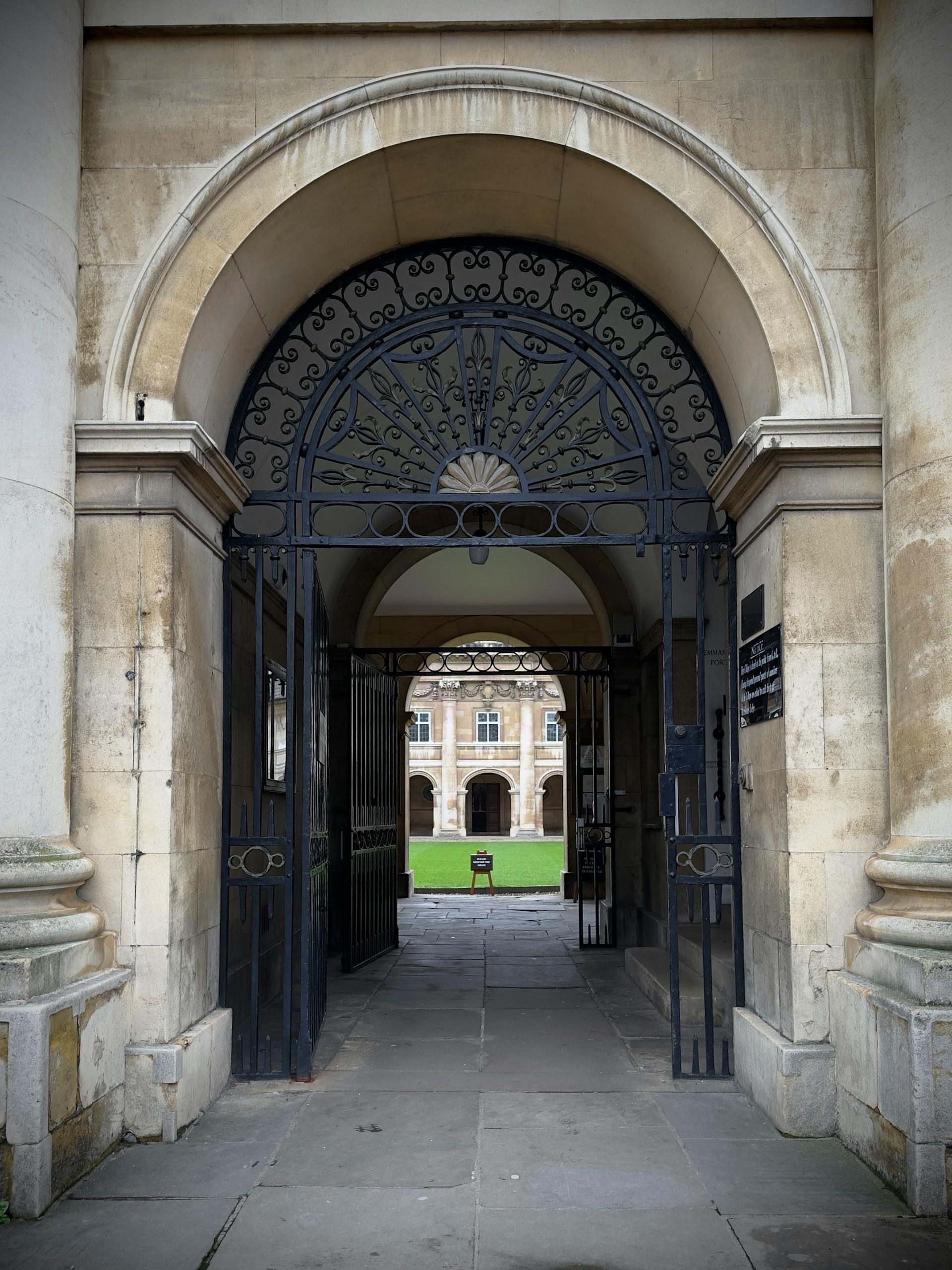Intellectual growth should commence at birth and cease only at death.
Albert Einstein
This venerated physicist likely didn't mean we should all stay in school for life - at least, not formal schooling. A petition for lifelong learning, on the other hand, would be right up his alley. The trouble is, thus far in our academic careers, we've mostly absorbed knowledge handed to us. We've yet to learn how to learn on our own, and because we want to.
That's what studying at university does for us. Granted, we'll still have books and lectures, and we'll still have to turn in papers. But the United Kingdom's best universities, the five this article features, go beyond those learning mechanics. Enrolling in one of these schools rewards you with the power and desire to continue your intellectual growth for life.
In this article, Superprof details requirements and steps to take for:
- getting into Harvard
- your Cambridge University application
- access to the London School of Economics (LSE) study programmes
- entrance into Kings College London (KCL), University College London (UCL), and similar schools

How to Get Into Oxford

This collegiate research university is the oldest in the English-speaking world, and the second-oldest in continuous operation in the world. It comprises 43 colleges, 36 of which are semi-autonomous. This sprawling academic haven further boasts four permanent private halls (PPH), and three societies.
We could continue citing statistics, attributes, and accolades - this university has plenty to its name. These facts neither help nor influence students trying to enrol in one of the best universities in the UK. However, this is one statistic to know.
Number of applications received: more than 23 000
Number of places available: 3 300
Many students worry about Oxford's grade requirements for entry. We might assume that top marks are the standard, but this question isn't so easily answered. For one, Oxford grade requirements vary, depending on students' selected study programmes.
Also, grades are only one indicator admissions officers consider; subjects studied is arguably a more important criterion. For example, a prospective medical student may have stellar grades but no biology courses listed on their transcripts. Biology studies are required to for access to Oxford's medical programme.
Does all this mean that poor grades bar students from getting into Oxford? This university's admissions officers consider all aspects of a student's academic experience. That includes external factors that might have impacted their ability to earn good grades. This presenter explains students' contextual data, and Oxford's holistic approach to evaluating candidate viability.
Applying to Cambridge
Centuries ago, the Oxford townsfolk grew outraged at university students' shenanigans. In 1209, they took their ire to the university itself, which prompted several academics to flee the campus. Those set up shop almost 150 kilometres away, in Cambridge.
There, they wasted no time building themselves a new centre for learning. They brought with them the discipline and academic traditions that imbued their old alma mater.

To this day, so alike are these two - the best UK universities, that we often talk about them as one. Hence, the name Oxbridge.
This bit of history may be interesting, but it tells you little about Cambridge's university ranking UK. And, it only hints at what you need to know about applying to Cambridge. The processes for these two list-topping best universities in the UK are much the same. The degree of support and guidance applicants can access is similar, as are the admissions statistics.
Number of applications received: 21 445
Number of places available: 4 553
As is common when applying to the best UK universities - including Red Brick universities, applications far exceed the school's capacity to accommodate. Thus, it's in your best interest to consider your academic standing before launching into the application process. For Oxbridge, that entails these steps:
Oxford application process:
- research/choose courses
- complete UCAS application
- write a personal statement
- take admission tests (depending on subject)
- submit written work (depending on subject)
Cambridge application process:
- research/choose courses
- research/choose college
- complete UCAS application
- write personal statement
- complete MyCambridge application
- take admissions tests (depending on subject)
- submit written work or portfolio (depending on subject)
Both these universities provide ample guidance throughout the application process. In fact, Cambridge University warns against paying for university entrance consultants, as applying to Cambridge already comes with the support you need.
Neither Oxford nor Cambridge lists courses in Clearing. Both schools fill all available places from their applicant pools.
This information nugget also comes to you at no cost. But it will prove highly valuable, particularly if you've not yet decided which academic discipline captures your interest.
For many students in such a situation, UCAS Clearing usually saves them from having to make a hasty decision. By contrast, Oxbridge encourages assertiveness, such as these two students exhibit.
Getting Into the LSE

This school's information austerity contrasts with Oxbridge's outpouring of support. LSE admissions advisers provide guidance, but not to the same extent. Also, while those two institutes consider a range of factors in their admissions decisions - including personal ones, LSE only considers academic performance.
Furthermore, LSE admissions officers base their decisions solely on your application package. You have no interviews to prepare for, nor must you sit additional qualifying exams.
All this implies your grades must be top-notch, and your personal statement must be the epitome of informative writing.
This school filled its roughly 1 800 available places from a pool of ~26 000 applications.
As always when applying to the best universities in the UK, the admissions issue is less about your academic record than the school's capacity to accommodate. This year's LSE application data reveals far more candidates than spots to fill. So, you mustn't take a rejection personally. The decision doesn't necessarily reflect on your academic standing or abilities.
As LSE bases their decisions strictly on your application package, it behoves you to make the best presentation possible. You don't have much room to dazzle on your UCAS application. However, you may paint your qualifications in bright, bold colours throughout your personal statement.
Your personal statement must:
- reflect your deep connection to your subject
- reveal how you pursued your subject
- demonstrate your written communication skills
- emphasise your worth as a potential LSE student
It must not:
- extol personal qualities unrelated to study
- exclude supporting evidence
- contain negativity or admissions of failure
- be poorly written
Above all, your application package and all required documentation must not miss any deadlines. Unlike the best UK universities, LSE application deadlines follow a unique schedule, represented in this timeline.
31 January
Deadline for receipt of applications
Late March
Undergraduate Admissions Assessment
Mid-May
UCAS decisions deadline on all applications
Early June
Deadline for response to UCAS
Students decide on their offers
Mid-August
A-Level results published
Mid- to Late-August
LSE makes final decisions on offers
Late September
Register at LSE
We close our LSE segment out with a candid review from a newly-graduated student. He discusses what applicants must be aware of when considering applying to LSE. Note that he qualifies his statements as personal observations, not an official narrative. Still, he raises points well worth thinking about.
Choosing Between KCL and UCL
These two universities defy classification. People tend to pigeonhole them in the 'Red Brick University' category. Red Bricks are a group of 9 universities that began operating in industrial Britain around the mid-1800s. Their red brick construction gives them their name.
UCL, KCL and other similar schools also started operating in that timeframe. They too boast red brick construction.

However, being in London - not in England's industrial belt, bars them from that designation. They come by it thanks to them being members of the Russell Group.
Eight of the nine Red Brick universities, as well as Oxford, Cambridge, and LSE are Russell Group members.
This group's main function is to represent higher learning establishments' interests in Parliament and government. That doesn't mean much to the hordes of students wishing to access their learning programmes. But this next titbit does: standardised application and entry processes.
KCL, UCL and other Russell Group universities - the best UK universities, all base their admissions on course requirements. They all recommend first consulting course catalogues to determine whether your academic record satisfies their specifications. This way, students know upfront whether they qualify for consideration.
As you progress through this standardised application process, you'll find well-defined steps. For instance, all UK university hopefuls must register and apply through UCAS, including international students. Beyond that point, each university typically sets its own document requirements. No so with Russell Group universities.
1. UCAS application
2. personal statement
3. transcripts
4. recommendations
5. qualifying examination (if the course requires)
This streamlined process makes applying to university so much easier. These universities even follow the UCAS timeline for document submissions (see above). We close this article with these students, who talk about applying to UCL or KCL, and offer practical tips to make your application successful.
Summarise with AI:






















